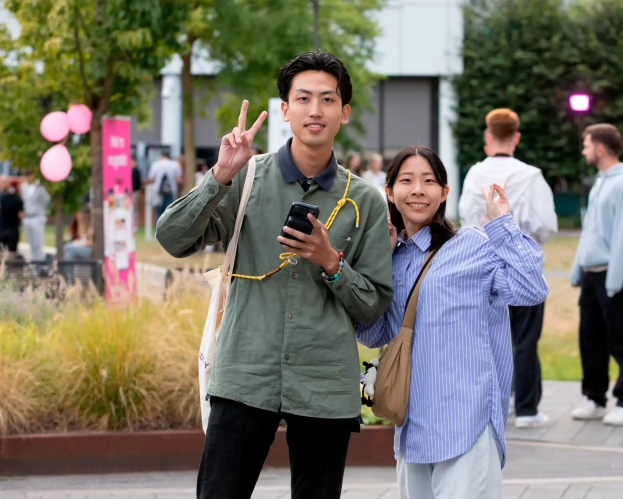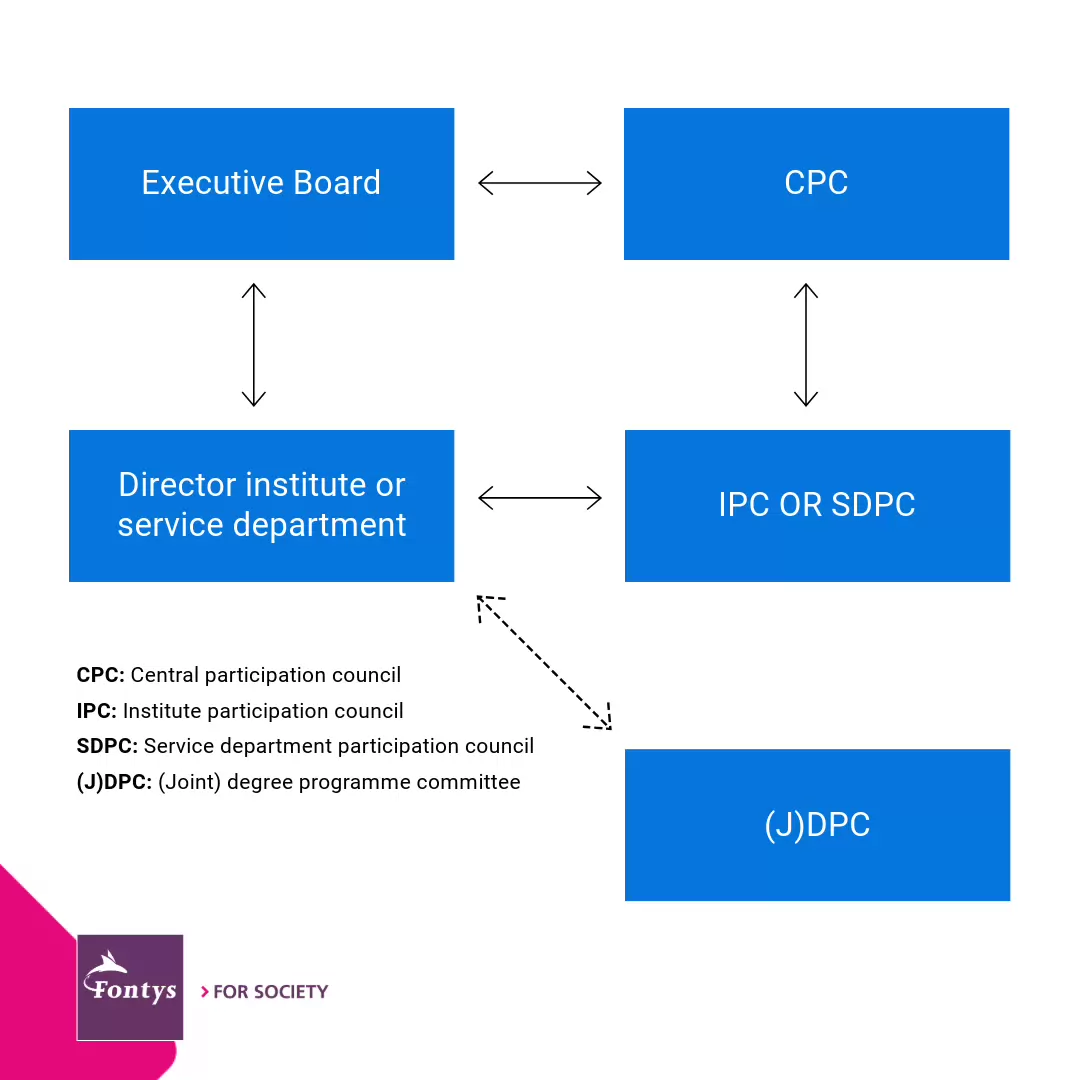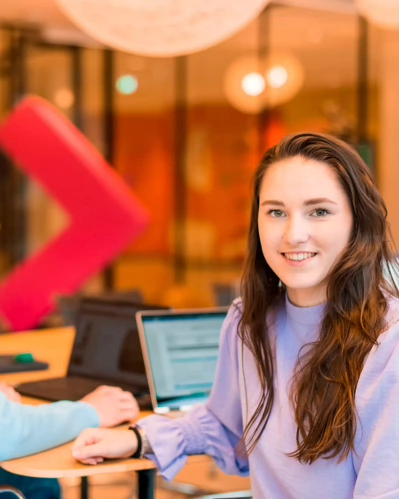

Who we are
Our organisation
The 25 individual Fontys institutes collectively offer more than 100 courses – bachelor’s, master’s, and associate degrees, as well as training programmes and courses for the business market – and carry out practice-based research, each in collaboration with and for its own professional field. The institutes and the Executive Board are supported by seven departments in the areas of finance, IT, marketing and communication, personnel and organisation, accommodation and facilities, education and research, and student services.
NVAO accreditation
All Fontys Associate degrees and Bachelor and Master’s programmes are accredited by NVAO (Accreditation Organisation of the Netherlands and Flanders).
Education and research
Education and research are equivalent activities at Fontys. For example, they are closely linked within each study programme. Even stronger: education and research regularly flow seamlessly into one another, for example in our authentic and hybrid learning and research environments, on our campuses or close to (or even at) the future workplace. Here, students, teachers, researchers and professionals literally come together to learn and do research.
Principles of education
Fontys has more than one hundred different study programmes, from dance to accountancy and from architecture to physiotherapy. Each study programme has its own unique professional context, its own curriculum, and its own way of providing education. We believe that this diversity is a major strength. No one knows better how a profession should be taught than the professionals who work with us. At the same time, frameworks are needed within which programmes can make their own choices. We have laid down these frameworks in five 'principles of learning'.
- We challenge students to discover and develop their talents to their full potential.
- Learning takes place as much as possible in an authentic learning environment (i.e. a situation that 'resembles' the later work environment).
- Learning is acquiring knowledge and skills together, exploring together and experiencing together. We literally mean 'together': together with fellow students, teachers, researchers and professionals in the field.
- The student is the 'owner' of their learning process. In other words, as a student, you get as much influence as possible on what, how and when you learn. This doesn't just mean that our students have a lot of freedom and autonomy but also a considerable amount of responsibility.
- Studyability is a crucial factor. By this, we mean that there is a good balance between challenge and feasibility.
Want to know more about our vision of learning? Read more on Fontys for Society, our strategy for 2021 to 2025.
Our education and research contribute to a vital, sustainable and happy society.
- We have students of more than 100 different nationalities.
- A community of 44,000 students, of whom 5,200 are international.
- 4,700 staff members of whom 3,400 lecturers and educational coaches.
- Our teaching style is interactive and student-centred.
- You can expect close personal attention and guidance during your studies.
- Great variety in Bachelor and Master programmes.
- Based in student cities Eindhoven, Tilburg and Venlo.
Talent-oriented Fontys
Fontys not only focuses on students, employees and professionals, Fontys focuses on society. As a public higher education institution, we have an important social task: we develop talent. First and foremost the students’ talent, but also the talent of our staff and of professionals from the region. We welcome anyone who has the appropriate preparatory education and wishes to develop their talent at Fontys.
Variety of programmes
We are an accessible university of applied sciences, as shown by our wide and varied range of courses. We offer courses in all shapes and sizes: bachelors, masters, associate degrees, and customised courses for working professionals. Of course, we offer a wide range of full-time programmes, but we also have part-time and dual programmes. In the future, we will add the professional doctorate, the higher professional education version of the PhD track. Moreover, students no longer encounter any barriers when transferring from secondary education or intermediate vocational education to Fontys, or when they transfer from a bachelor's degree at another university of applied sciences or university to a Fontys master's degree.
Inclusion and diversity
Accessibility translates not only into a broad range of courses, but also into an inclusive climate. Inclusion goes beyond diversity: we want people from all groups in society to come and study (and work!) with us. We also want all these people to feel at home at a public institution like Fontys. Every person is unique, and we all have unique talents. Those talents are also desperately needed in the world around us. That is why our doors are open to anyone who wants to study with us.
Authentic and hybrid learning
Talent-oriented education also responds to the differences in professional skills and work settings required by the sectors or professions for which we offer preparation. That is why our students often work together with lecturers, teacher-researchers, lectors, and professionals from their (future) professional field. We call this an authentic (similar to real-world contexts) and hybrid (cooperation between Fontys and the outside world) learning and research environment; this is where students develop their professional skills. All Fontys study programmes offer such a hybrid environment: on our campus, at a company, or elsewhere in the vicinity of the professional working environment.
Flexible education
If accessibility and talent-focused education are paramount, we must also focus on everyone's individual ambitions, private circumstances, learning methods, and specific learning questions. This is what we call flexible education. Fontys works hard to make its education – part-time, but certainly also full-time – as flexible as possible. Digitalisation (online learning) plays an important role, but it also demands a lot from the content of the courses (curricula), the examinations and scheduling. In this way, we truly give shape to 'lifelong development'.
Research-based education
In addition to talent, we also develop knowledge – knowledge that stems from practice-based research. Fontys wants to be an inquisitive organisation. We ask students to study and acquire knowledge in an investigative manner, and we do the same. Lecturers, teachers, and students, together with partners from the professional world, investigate how they can innovate professional practice. By collaborating, learning, and researching together from different disciplines – both within and outside Fontys – we contribute to solving complex social issues.
Want to know more about research at Fontys? Read more on Fontys for Society, our strategy for the period 2021-2025.
Connecting research & education
Education and research are equivalent, and they are closely linked within each study programme. In fact, education and research often merge almost seamlessly, for example in our authentic and hybrid learning and research environments, on our campuses, or close to (or at) the future workplace. Here, students, lecturers, researchers, and professionals come together to learn and do research.
Multidisciplinary collaboration
Fontys is a broad-based university of applied sciences. This is useful, as the social issues we are looking to resolve are increasingly occurring where disciplines intersect. These so-called ‘wicked problems’ require a multidisciplinary approach. That is why we make as many connections as possible between the many substantive specialisms we have in-house. In learning communities – the authentic and hybrid learning and research environments mentioned above, but certainly also in our centres of expertise (COEs) or knowledge centres – education, research, and the professional field come together physically or online to conduct multidisciplinary research into complex social issues.
Knowledge themes
In its multidisciplinary research, Fontys focuses on six themes that play a role in regional, national, and global society:
Education: facts & figures
Fontys has 41 lectorates. A lectorate is a network of researchers led by a lector. This professor and their research group are specialised in a certain theme. At Fontys, the lectorates and researchers are all linked to one institute. Of course, multidisciplinary research takes place, to which several lectorates and their researchers contribute. The latter takes place, for example, in so-called centres of expertise (COEs) and knowledge centres. At Fontys, we aim to have at least one centre of expertise or knowledge centre for each of the six knowledge themes.
Company course
The urgency of energy transition and its affordability; the rising costs of our healthcare system and the use of technological aids; the lack of tolerance for others and the pressure this puts on social cohesion.
The number and complexity of these wicked problems in the social context are more likely to increase than decrease in the coming decades. Fontys can and wants to contribute to resolving these issues. Students can lay the foundation for a meaningful social contribution during their careers. Professionals can come to us for retraining, post-training, and additional training. And, through practice-based research, we contribute to a constructive response to the continuous stream of rapid, far-reaching changes in society. Talent for society and knowledge for society!
Want to know more about our vision and course? Read Fontys for Society, our strategy for 2021-2025.
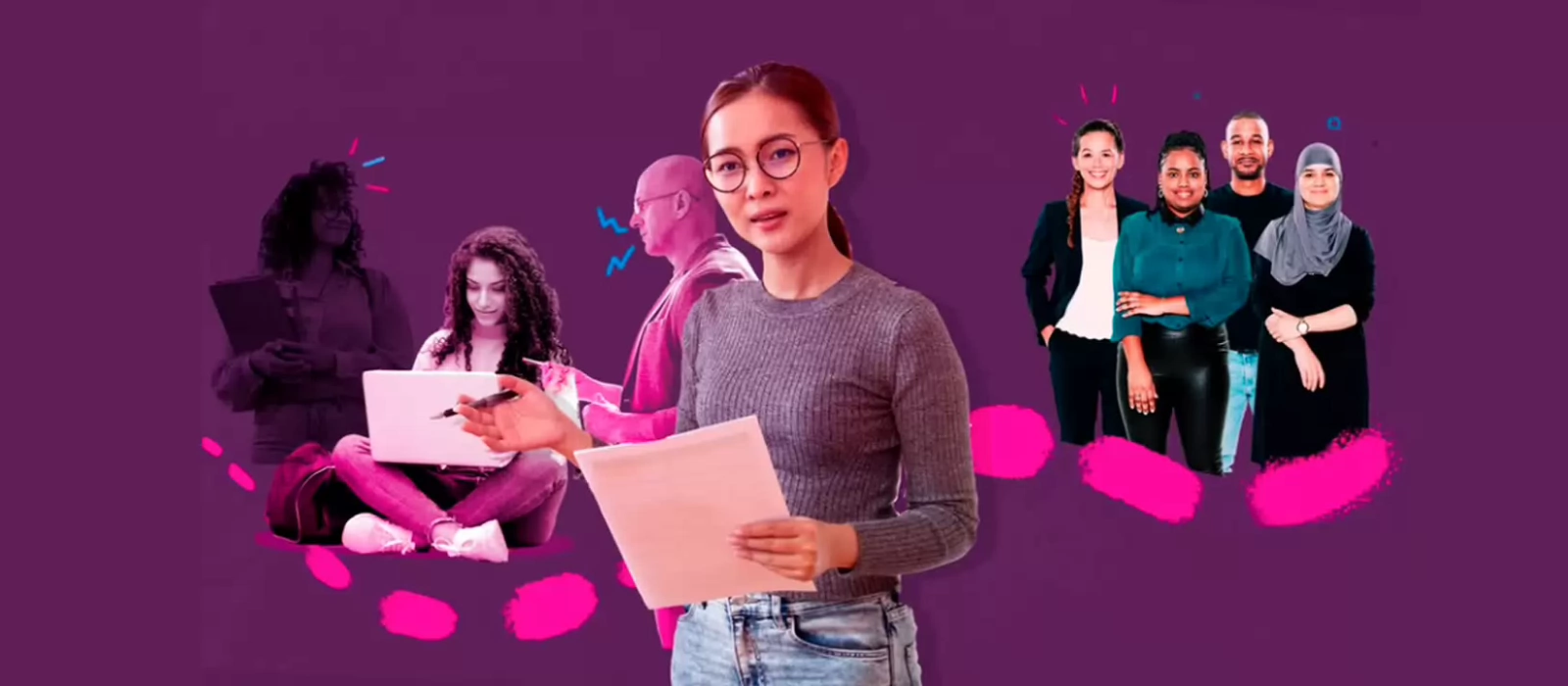
Fontys For Society
Our company course to 2025Our assignment
Development is a key concept at Fontys. Young people develop their talents as students with us, we develop relevant practical knowledge, working professionals can also develop further at Fontys, we respond flexibly to far-reaching social developments and – last but not least – within our community we develop ourselves by sharing knowledge and skills.
We operate in the heart of society. In our hybrid learning and research environments, students, lecturers, researchers, and professionals work together. In that way, education and research, as well as learning and working, become increasingly intertwined. Our main social value is therefore the development of talent and knowledge.
Fontys is a multidisciplinary university of applied sciences in the south of the Netherlands. Together with and for the (regional) professional environments, we provide high-quality, higher vocational education and conduct innovative, practice-oriented research. In this way, we contribute to the development of a dynamic, inclusive, and sustainable society.
Our identity
Ask ten employees, students or professional partners to describe Fontys’ identity, and nine times out of ten these three elements will come up: our size and broad expertise, our personal approach, and our warm community including thousands of (international) students and employees.
“The strength of our size”
Over 46,000 students and 5,000 staff. Locations in 10 cities in two different provinces. 89 bachelor's programmes of which 23 English taught, full-time, part-time and dual, in almost every conceivable 'discipline' on the labour market. And: 28 master's programmes, 15 associate degrees, and a large range of courses and study programmes for the business market. No fewer than 41 lectorates engaged in research and knowledge innovation. Fontys is a large, substantively broad, and geographically dispersed university of applied sciences. It is this richness that offers great opportunities – opportunities for a flexible educational programme for the individual student, and opportunities for multidisciplinary research.
“The intimacy of our approach”
Fontys is also characterised by an informal culture and a personal approach. We focus on the individual. First and foremost, this means we focus attention on our students, but it also implies our care for Fontys employees, alumni, potential students, and the close and often personal contact with our partners in the professional field. The latter is precisely a consequence of our locations: the Fontys institutes are firmly rooted in the region.
“The dynamics of our community”
The third pillar of our identity: collaboration within our active community network of highly educated professionals, students, and partners in the working world. The first two elements of our identity lead directly to the third: the size and breadth of Fontys, complemented by its informal culture and the warm, spontaneous (internal and external) contacts 'from the bottom up', make Fontys a dynamic entity. We certainly have some way to go in terms of internal and external multidisciplinary cooperation, but the potential of Fontys as a close-knit knowledge community is widely recognised.
Our values
We carry out our mission with intrinsic motivation, based on shared values that have long characterised our organisation. These are values that we find important.
Personal attention and connection
We give personal attention to students, professionals, and colleagues. We focus on personal contact, guiding our students, and connecting with each other.
Diverse and socially just
Everyone gets the chance to develop optimally, in a way and in a place that suits each of us. We respect and value diversity, because differences between people enrich and inspire us.
Courage, innovation, growth, and development
We also challenge each other with innovations and new forms of learning, and by learning and working together intensively. In doing so, we offer opportunities, but at the same time we are also a safety net. Facing these challenges requires courage and daring.
Open, honest, and trustworthy
We are open and transparent about the quality of our organisation, education, and research – and about how students, staff and professionals experience these. We give each other constructive feedback on the quality of learning, teaching, and research. In doing so, we also reflect on our own behaviour. In this way, we give shape to our social mission together, with integrity.
Fontys for Society
In 2020, together with the entire Fontys community – students, staff, external partners – we drew up a new strategic plan for the coming five years: Fontys For Society. The core of this plan is that Fontys wants to develop further in three areas. By 2025, we aim to be an even more talent-oriented, research-oriented, and flexible Fontys.

Facts & figures
Key figures Fontys
| 2019 | 2020 | 2021 | |
| Income (€ x 1.000) | 422.310 | 428.647 | 486.442 |
| Results (€ x 1.000) | 6.295 | -10.198 | 19.658 |
| Solvency | 52,8% | 55,4% | 57,5% |
| Liquidity | 1,1 | 1,1 | 1,3 |
| Profitability | 1,5% | -2,4% | 4,0% |
| Student volume | 44.320 | 46.123 | 46.160 |
| Student satisfaction (National Student Survey (NSE)) | no measuring | no measuring | 3,67 |
| Employee satisfaction (Fontys Employee Satisfaction Survey) | - | no measuring | 7,6 |
| FTEs | 3.778 | 3.931 | 4.196 |
| Number of employees | 4.938 | 5.186 | 5.648 |
| Number of lectorates | 44 | 41 | 44 |
| Teaching staff: support staff ratio (based on FTEs) | 66% : 34% | 66% : 34% | 66% : 34% |
| Absenteeism due to sickness | 4,7% | 4,4% | 4,4% |
| Educational level (average) (% at least master level) teaching staff | 77% | 77% | 74% |
Board
Executive board
The Executive board is responsible for realising the organisation’s mission, educational vision, strategy and objectives and for the ensuing results trajectory. Board members are appointed by the Supervisory Board for a period of four years. They may be reappointed after this duration. The Executive Board is made up of three people with a mutual division of tasks between horizontal and vertical portfolios. The members of the Executive Board are jointly and individually accountable to the Supervisory Board for the manner in which the duties are performed.
The three Executive Board members are:
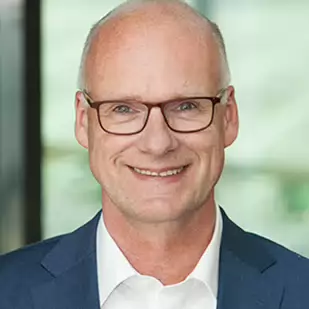
Joep Houterman
(voorzitter)
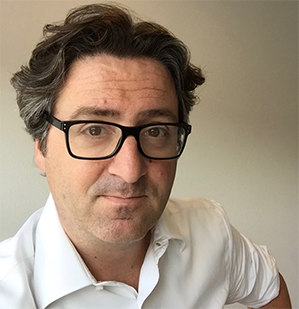
Frans Möhring
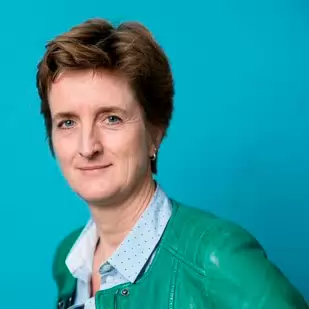
Arian Steenbruggen
Supervisory board
The Supervisory Board sees to it that the Executive Board is adequately managed. The tasks, powers and profile of the Supervisory Board are laid down in the statutes and the Administrative and Management Regulations. The Assessment framework which has been drawn up in accordance with the Code of Good Governance for Universities of Applied Sciences, contributes to a systematic interpretation of the supervisory role. The Supervisory Board is composed in such a way that the members can operate independently and critically with respect to each other, the Executive Board and any other interested parties. The Supervisory Board is made up of seven people and is supported by the secretary of the Executive Board.
Members serve for a term of four years, after which they become eligible for immediate re-election for a second term. A member of the Supervisory Board shall not sit on the Board for more than eight consecutive years. In committee, the Central Participation Council (CPC) has the right to advise on proposed appointment decisions.
Control
Fontys controllers have an independent function. In their capacity they are free to advise upon, and highlight, issues. The Control Department may issue unsolicited advice on matters that fall within its remit.
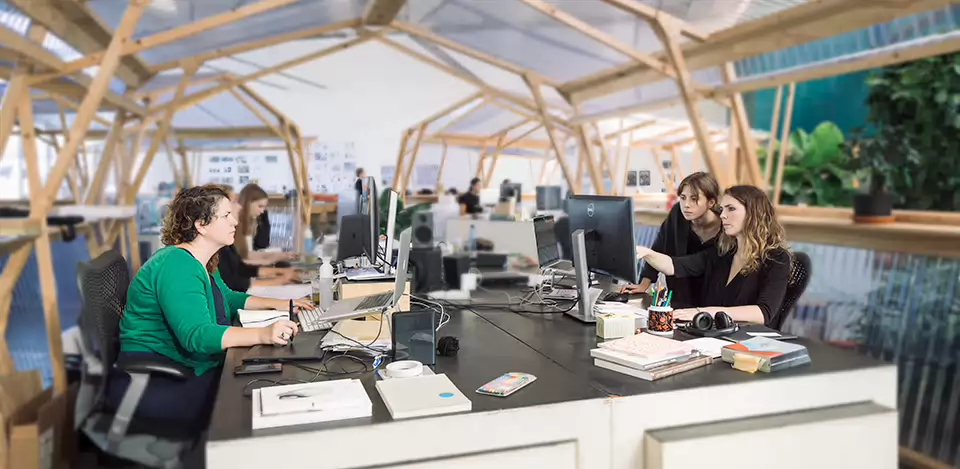
Control has the following tasks:
Making substantive goals and tasks within the organisation measurable.
Drawing up directional recommendations for the development of strategic policy.
Developing and directing processes within the framework of the planning and control cycle, and assessing their formulation and implementation.
Advising the Executive Board and management on the quality of business processes and managerial measures.
Identifying financial and business risks.
Preparing a multi-annual financial forecast and analyses across all results areas.
Analysing and reporting on the legitimacy and effectiveness of the use of resource deployment and coordination.
These tasks are assigned on a centralised level (in the case of group control) and on a decentralised level (in the case of domain controllers). At centralised level, the emphasis is on policy support for the Executive Board and the prescriptive and evaluative role within the framework of planning & control. At decentralised level, the emphasis is on the role of sparring partner for management.
Participation
Participation is a manager's 'critical friend'. So too at Fontys. Parties acknowledge and respect each other's role and position within our organisation.
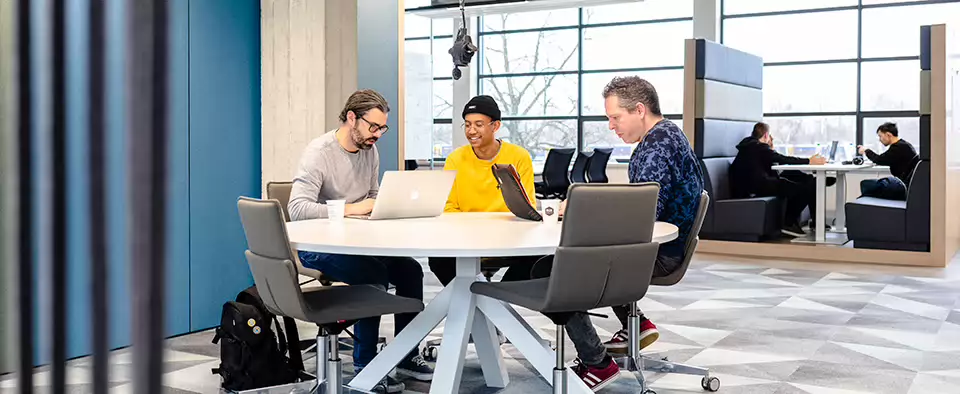
Participation at Fontys means being involved in organizational development and quality of education by staff and students in legally defined participation bodies. The goal: to achieve high-quality education and a transparent organization through dialogue, in which students and staff can get the best out of themselves.
Participation councils have the right of consent on a number of issues. They can give the Executive Board solicited and unsolicited advice.
Participation at three levels:
Central Participation Council (CPC)
The Central Participation Council is the interlocutor of the Executive Board. The Council consists of eleven students and eleven staff members elected by direct election. They discuss Fontys-wide strategic and tactical issues with the Executive Board (College van Bestuur (CvB)). The CPC can give solicited and unsolicited advice on subjects that are important or have consequences for the whole of Fontys. Moreover, based on the law and the participation regulations, the CPC has the right of consent on a number of subjects.
Service Participation Council (SPC) and the Institute Participation Council (IPC)
The Service Participation Council consists of employees of the respective service. Each institute has an Institute Participation Council and it consists of both employees and students. They discuss policy issues of their department or institute with the director.
Degree Program Committee (DPC)
All programs have a degree program committee (DPC) or a number of related programs together have a joint DPC. A DPC consists of teachers and students and they discuss the implementation of education with a delegation from the management. Thus, they contribute to ensuring the quality of education.
Employee participation is the director's "critical friend". Parties recognize and respect each other's role and position within the organization. Participation councils have the right of consent on a number of subjects. They can advise the director solicited and unsolicited at all times. Participation councils have the right of consent on a number of subjects. They can give solicited and unsolicited advice to the Executive Board.
All these councils do their work within the frameworks laid down in the Fontys Participation Councils and study program committees regulations.
Participation Centre
The Participation Centre (PC) is the fulcrum for participation and student participation. The PC provides support on a centralised and decentralised level. It provides tailor-made services to participation councils, study programme committees and their dialogue partners. The central focus is on professionalising participation and co-determination by providing training and education and advice on organisation and set-up.

